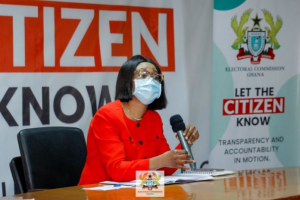
According to GhIPSS, the total volume of transactions spanning January to June 2020, stood at over 29 million compared to about 16 million transactions for the same period in 2019.
It also stated that specific channels such as GhIPSS Instant Pay (GIPS) saw a huge growth of almost 600 percent, while Mobile Money Interoperability grew by over 444 percent in the first half of this year.
In an interview with Citi Business News, Chief Executive Officer (CEO) of GhIPSS, Mr. Archie Hesse said the increase is driven mainly by transfers from account to wallet which represented 86% of GIP transfers.
“The GIP and MMI platforms recorded significant growth in volumes going up by 600% from 300 thousand in 2019 half year and 444% from 2.5 million in 2019 half year respectively. GIP’s outstanding performance is largely driven by tranfers from account to wallet: a total of 2.1 million transfers representing 86% of GIP transfers,” he said.
However, the transactions, captured in the GhIPSS product performance report which include electronic clearing of cheques, Automated Clearing House (ACH), e-zwich and gh-link suffered varying levels of decline in transaction volumes.
“This year’s total transaction volume of 29 million transactions represents a growth of 81% over the 2019 half year performance of 16 milion transactions. The clearing house, e-zwich and gh-link suffered varying levels of decline in the transaction volumes. Gh-link was the worst affected in the period and declined by 29%, this poor performance was followed by e-zwich which declined in volume by 4% because customers are unable to access services from the banks,” he said.
He also stated that the country is making steady progress towards becoming a cashlite society, as about 60 per cent of all financial transactions were initiated and completed on the various electronic platforms in use.
The service was introduced in May, 2018, recording about 100,000 transactions in its first few weeks.
With the introduction of electronic payments in the country, customers are now able to make transactions or pay for goods and services through an electronic medium, without the use of cheques or cash.
This eliminates the hitherto complexities and inconveniences associated with transfers across the various networks in the country.
The electronic payment system has also been seen as a significant vehicle to deepen financial inclusion to promote cashless transaction in Ghana.
It will also serve as a viable vehicle for financial intermediation; as businesses and individuals can use money digitally.
The GhIPSS
Ghana Interbank Payment and Settlement Systems Limited (GhIPSS) is a wholly-owned subsidiary of the Bank of Ghana. It was incorporated in May 2007 with a mandate to implement and manage interoperable payment system infrastructures for banks and non-bank financial institutions in Ghana.
In line with its mandate, GhIPSS has implemented and currently manages the following: National Switch & Biometric Smart Card Payment System- e-zwich, Cheque Codeline Clearing (CCC) System, Ghana Automated Clearing House (GACH) systems- Direct Credit & Direct Debit and the National Switching and Processing System- gh-link.
GhIPSS is committed to maintaining very high standards of excellence, reliability, integrity, and timeliness for all its infrastructure. These standards have enabled GhIPSS to attain ISO27001 certification. GhIPSS´ payment infrastructure is currently used by all banks in Ghana including the ARB Apex Bank and its affiliates, Savings and Loans Companies and third Party Payment Providers.
source: citinewsroom.com







